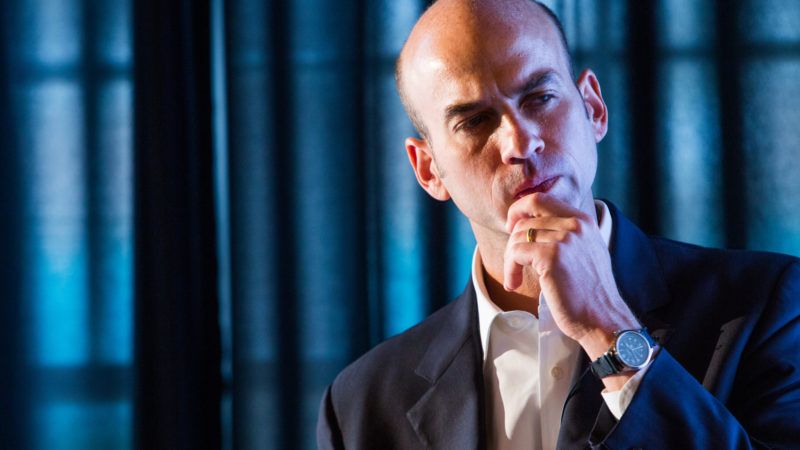The Economics of Cancel Culture
When mob mentality and moral suasion meet the market

A wave of hasty firings is sweeping across the country, driven by demands from what some call the "cancel culture." The New York Times editorial page editor James Bennett ran an op-ed from Sen. Tom Cotton (R–Ark.) that displeased the paper's readers and some colleagues, so he lost his job. The chief curator at the San Francisco Museum of Modern Art, Gary Garrels, lost his job, too, after he was accused of being a racist for saying he would still collect art from white men. But the list of those who lost their jobs is much longer, and the rationale is sometimes as stunningly weak as someone liking the wrong tweet.
As a result, fear has gripped many workers: Any day, any worker can be fired for simply angering a Twitter mob. Meanwhile, employers are left wondering how they should react when one of their employees becomes a target.
Every case is different, and employers should be able to dismiss workers. "Employment at will" remains the best labor policy. However, one piece of wisdom is worth following: During scary, emotional, or angry times, don't act hastily. Slow down.
There is value in not making rash decisions during stressful times. Mental health professionals often advise grieving families to not make any life-altering decisions for a solid year after the death of a loved one. In daily life, some common advice for those about to send a nasty email or text is, "Sleep on it."
Acting out of anger is not uncommon. Mark Twain, for instance, noted, "Anger is an acid that can do more harm to the vessel in which it is stored than to anything on which it is poured." Aristotle observed, "Anybody can become angry—that is easy—but to be angry with the right person and to the right degree and at the right time and for the right purpose and in the right way—that is not within everybody's power and is not easy."
This rule of not acting out of passion is central to our political system. James Madison, in Federalist No. 10, warns of impetuous mobs or factions "united and actuated by some common impulse of passion, or of interest, adverse to the rights of other citizens, or to the permanent and aggregate interests of the community." As such, Madison and the Constitution's other architects created a system of governance that discourages fast, immediate action and gratification.
The built-in slowdown requirement enshrined in the Constitution is also present in our legal system. Due process means that no stage of legal proceedings can be dispensed with, preventing government from acting too hastily.
Today, the wisdom that inspires our constitutional system and many other fields could help private firms when responding to the demands of an impetuous mob. Imagine if employers adopted the public position to wait, let's say two weeks or so, when faced with demands that a worker be fired for some alleged claim. Such a policy would have a few advantages.
First, it would give the company time to determine if the accusations are well founded. It would also allow the company to assess the bigger impact of such a decision on other employees without excessive retaliation costs for not acting quickly enough.
Second, a waiting period would allow heads to level and passions to cool. In the age of instantaneous news, the mob might become distracted by other events, allowing a company to assess the situation without the constant pressure. At the end of the waiting period, if the employer decides it still needs to let the employee go, it will have had time to develop an argument for why it's making that decision as opposed to the contradicting messaging that has surrounded many of the recent firings.
There's a larger issue here, one that we libertarians pay too little attention to: What is the proper role of moral suasion on commerce? If there is no role, then the state, with its formal law, becomes the only constraint other than market competition. If there is a role, as Aristotle hinted, then let's be sure to do it right.
For now, however, it's easy to see the benefits for all involved if firms start waiting a little before dismissing employees under public pressure.
COPYRIGHT 2020 CREATORS.COM


Show Comments (72)